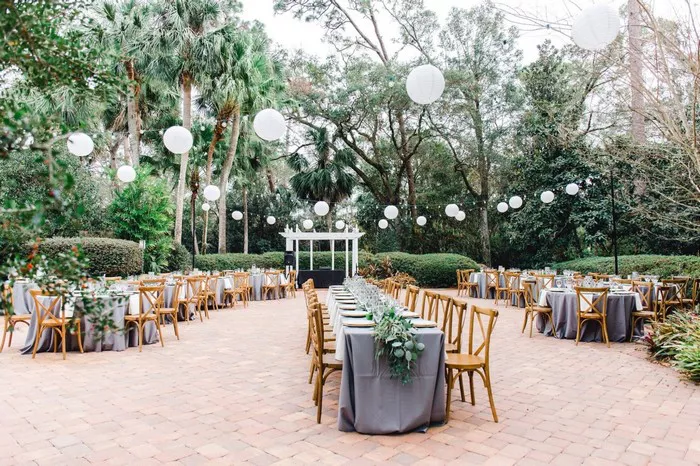Planning a wedding is a joyous yet complex journey that requires thoughtful preparation, organization, and clear decision-making. Whether you envision a lavish celebration or an intimate gathering, knowing what comes first in wedding planning sets the tone for a smooth and enjoyable process. Starting off on the right foot can help avoid common pitfalls and stress, ensuring that your special day unfolds beautifully.
The Importance of Starting with a Plan
Weddings can be overwhelming due to the many components involved — venues, vendors, guest lists, themes, attire, and more. Without a clear plan, couples often find themselves juggling too many decisions at once or facing last-minute surprises.
Starting with the right priorities helps establish a framework that guides every choice moving forward. This approach not only saves time and money but also enhances the overall experience, letting couples focus on celebrating their love rather than stressing over logistics.
Have the Essential Conversation — Set Your Wedding Vision and Priorities
Before booking anything or sending invitations, the most important thing to do is sit down as a couple and discuss your vision for the wedding. This conversation should cover:
What kind of wedding do you want? Is it a grand ballroom affair, a beach ceremony, a rustic barn celebration, or a small city hall event? Understanding your style and atmosphere preferences will influence every other decision.
What is most important to you? Is it the guest experience, photography, food, entertainment, or something else? Defining your top priorities helps allocate budget and time efficiently.
Who do you want to invite? Having a rough idea of your guest list size helps determine the scale and suitable venues.
What’s your estimated budget? Knowing your financial boundaries upfront is critical to realistic planning and vendor selection.
This foundational discussion ensures you and your partner are aligned, creating a shared vision that will drive the planning process.
Set Your Budget
Budgeting is one of the earliest and most crucial steps in wedding planning. Weddings come with many costs—venue, catering, attire, photography, décor, entertainment, invitations, and more. Without a clear budget, you risk overspending or disappointment.
Tips for setting your wedding budget:
Determine your total budget: Consider how much you and your families are willing to contribute.
Research typical costs: Get a rough idea of what key elements cost in your area.
Allocate your budget according to priorities: Spend more on what matters most to you, and trim less important items.
Set aside a contingency fund: Around 5-10% for unexpected expenses.
Having a budget early guides your choices and helps vendors tailor options to your financial limits.
Draft a Preliminary Guest List
Who you invite impacts many other decisions—venue size, catering, and even budget. Start by creating a preliminary guest list to estimate the number of attendees.
Make two lists: One for must-invite guests (family, close friends) and another for optional guests.
Consider your venue size and budget constraints: These will naturally limit the number of people you can invite.
This initial guest list doesn’t have to be final but will give a solid framework for choosing venues and planning logistics.
Choose a Date or Date Range
Selecting your wedding date is another vital early step. Considerations include:
Season and weather: Do you prefer a spring garden wedding or a cozy winter celebration?
Venue and vendor availability: Popular venues and vendors book far in advance, especially on weekends and holidays.
Significant dates: Anniversary dates, family availability, or cultural/religious holidays may influence your choice.
Some couples remain flexible, picking a season first and narrowing down dates after securing their preferred venue.
Book Your Venue
Once you have a general vision, budget, guest list size, and date in mind, securing your venue becomes a priority. Venues are often booked a year or more in advance, so early booking is crucial.
Visit multiple venues: Compare their capacity, style, amenities, and price.
Check availability: Confirm if they can accommodate your preferred dates.
Understand policies: Cancellation, deposits, and vendor restrictions.
Your venue sets the tone for your wedding and influences your theme, décor, and overall flow, making it one of the first major decisions.
Hire Key Vendors
After the venue is secured, focus on booking essential vendors who also get reserved early, such as:
Photographer and videographer: To capture your day.
Caterer: If not included with the venue.
Wedding planner/coordinator: Especially if you want expert help managing details.
Entertainment: DJ or band.
Florist: For décor and bouquets.
Early vendor booking ensures you get your preferred professionals and allows them to plan adequately for your event.
Start Shopping for Attire
While many couples finalize attire closer to the wedding date, starting the search early is wise, especially for custom or international orders. Bridal gowns, tuxedos, and bridesmaid dresses often require months for fittings and alterations.
Bonus Step: Create a Wedding Planning Timeline
As soon as you have your basics set, draft a planning timeline or checklist outlining tasks month-by-month. This timeline might include sending invitations, booking additional vendors, finalizing menus, and confirming RSVPs.
Having a timeline keeps your planning organized and reduces last-minute rushes.
Conclusion
What comes first in wedding planning? The answer lies in setting a clear foundation: envision your ideal day, agree on your budget, draft your guest list, pick a date, book your venue, and hire key vendors. These initial steps create a roadmap that simplifies subsequent choices, turning a complex event into a manageable and joyous experience.
Taking the time to prioritize these early actions helps couples stay aligned, control costs, and focus on the celebration of their love. Wedding planning is a marathon, not a sprint — but starting smart ensures you cross the finish line with grace and happiness.

